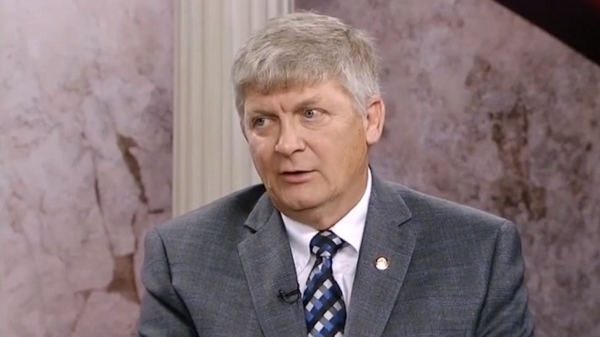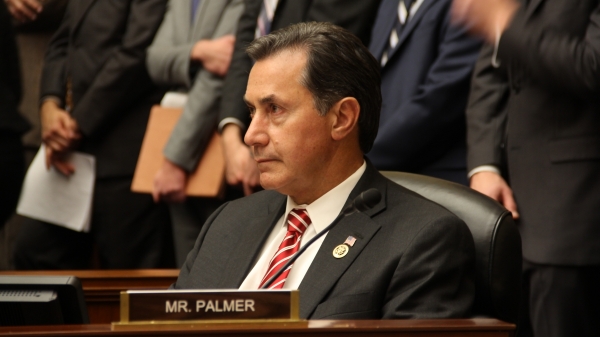By Brandon Moseley
Alabama Political Reporter
On Wednesday, March 18, the Alabama Senate Judiciary Committee gave a favorable report to S.B. 67 which is based on recommendations of Alabama’s Prison Reform Task Force.
Sponsor Cam Ward (R-Alabaster) said on Facebook, “Thank you members of the Al Senate Judiciary Committee for passing the prison reform bill 9-0. I appreciate your support and look forward to debating this on the floor in the Senate.”
Alabama’s prisons are at 192 percent capacity and State officials fear a costly federal takeover of the state’s chronically underfunded corrections system. For the last nine months, the task force, headed by State Senator Cam Ward (R-Alabaster), has been studying how to gradually reintegrate non-violent offenders from the State’s overcrowded prisons to Alabama society without an increase in crime.
Senate Judiciary Chairman Cam Ward said at a recent meeting on prison reform that this is a complex subject, but it is very interesting. Ward said that Alabama spends less than any other state on prisons, but incarcerates more than anybody else in the country (on a percent of the populace basis).
Sen. Ward said that 55 percent of the prison population have a mental health disorder and 72 percent have a drug condition. 98 percent will come out at some point. “We are spending money on a system that just doesn’t work. You can’t just lock them in a cage and think somehow that cures them.”
Ward said that it is politically popular to just say put everybody in jail. The problem is we do that but we are not willing to back that up with the financial resources to do that. Ward said that building enough prisons to solve our capacity problem would require over a half a $billion in new taxes. We could ignore the problem and eventually a federal judge will handle it. Real reform however saves money and it is smarter.
Alabama Department of Corrections Deputy Commissioner for Government Relations Jeffery Williams said that presently 38 percent of Alabama prisoners leave the system without any post supervision. We want every inmate that leaves prison to have some supervision. We need that period of supervision to combat recidivism. The average parole office has a caseload of 200 or more that is too much to be effective. Alabama has a 34 to 35 percent recidivism rate, with close supervision that is just 12 percent.
Sen. Ward said “Wouldn’t you rather have that than have someone released with no supervision released into your neighborhood? If you don’t comply you are going back on. That sounds good but the amount of money you can save through post incarceration supervision is tremendous. “Wouldn’t you rather them get a job pay their taxes and be a productive member of society rather than be a threat to society?”
Ward said that the Corrections System needs to make sure that released inmates address their mental health and drug abuse issues. This has been an 8 month process. We looked at what other states did and listened to judges, prosecutors, victim rights activists, the ACLU, and even inmates’ rights groups.
Ward said that the plan is to lower the prison population from 192 percent capacity to 132 percent capacity over five years. What we have proposed is something that nobody is completely happy with but everybody is 85 to 90 percent happy with. The bill that was released on Friday, the new substitute for SB 67, is about 121 pages. We did not break it up into ten parts, because if we did that then legislators will vote for the easy stuff and vote against the hard stuff.
Sen. Ward said that most of the sentencing guidelines were made on the front end two years ago. We have had less people going to jail without an increase in crime. Ward said that with this new post release system there will there be a system to make sure that the convict complies with the law. Punishment for technical violators will be swift and sure. If you violate the terms you will spend time in jail.
Cam Ward said that the prison education budget is only $4.1 million, but only $38,000 of that money is actually going into skills training. You have a 2 year system that is diverting that money off. We need to make sure that the money we are appropriating is actually used like it is intended.
Ward said, “We have to have a capacity increase. There is no way around it…Facilities that we built in the 1930 and 1950’s can not be upgraded to where they are safe. ..You can not upgrade Tutwiler…We will call for a minimum of 5000 new beds over the next five years. To think you can avoid that is ludicrous.”
Ward said that this plan will cost about $130 million over the next five years, but how much are you going to spend versus taking another path? Simply building our way into compliance would cost $700 to $800 million. This plan will require a revenue increase, but that was already planned.
The bill is expected to be introduced on the Senate floor when the Senate returns from it’s spring vacation.























































